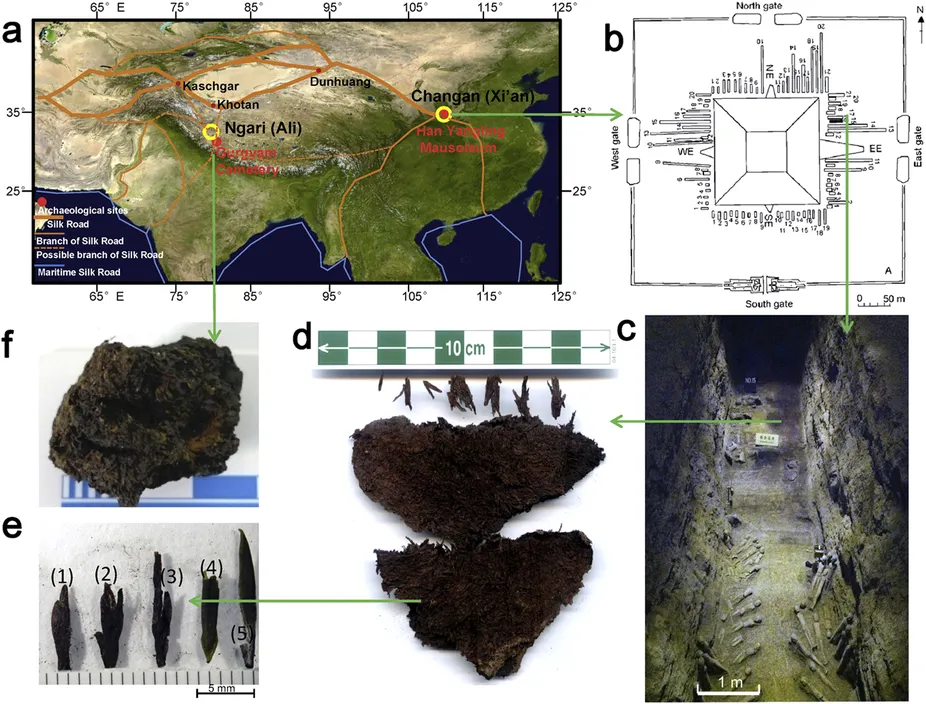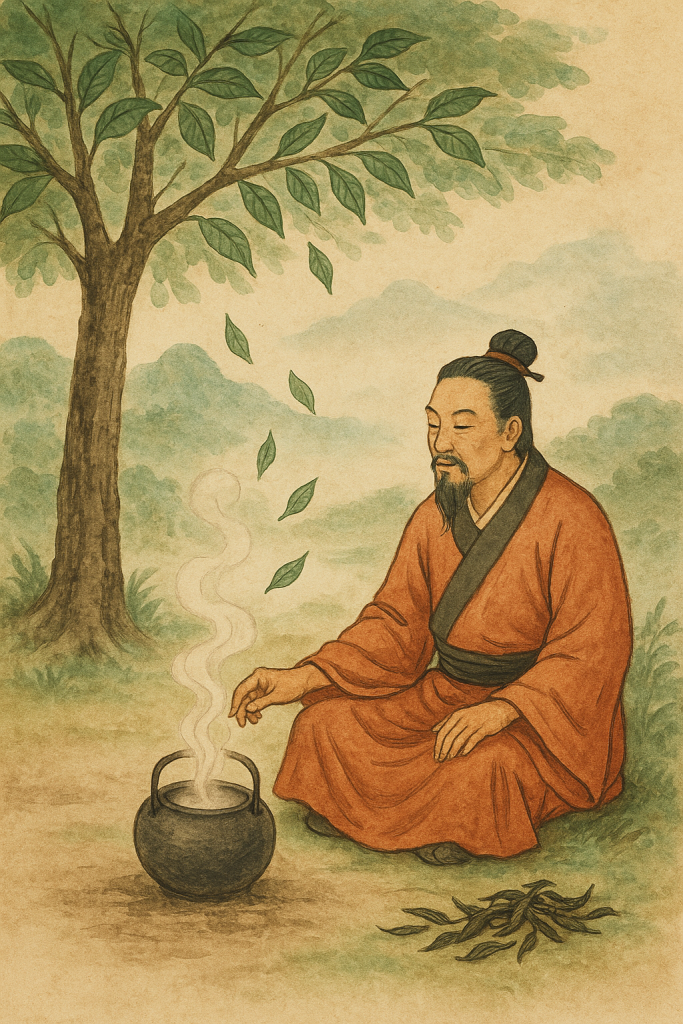A Legendary Beginning
Tea is more than just a comforting drink—it’s deeply rooted in culture, myth, and tradition. According to Chinese legend, tea was discovered nearly 5,000 years ago by the mythical emperor Shen Nung (also spelled Shennong).
As the story goes, Shen Nung was boiling water under a Camellia sinensis tree when a few leaves accidentally drifted into his pot. Curious, he took a sip of the infused water and was immediately captivated by its taste. And so, tea was born—or so the legend claims.
The First Written Mentions
While the tale of Shen Nung may be mythical, tea’s historical importance in China is very real. The earliest written records of tea cultivation date back to the Warring States period, during the Han Dynasty, around 2,500 years ago. These records suggest that tea was already valued and possibly traded, cultivated, or consumed by ancient Chinese communities.
Searching for Physical Proof
Legends and writings are powerful, but physical evidence is even more compelling. Unfortunately, tea leaves are organic and decompose quickly, which makes it rare to find ancient samples in archaeological digs.
However, researchers at Peking University’s Institute of Cultural Heritage and History of Science and Technology made a major breakthrough. They discovered charred suspected tea remains (CST) in a bowl from tomb No. 1 at Xigang, located in the Ancient Capital City Site of the Zhu Kingdom in Zoucheng City, Shandong Province. This tomb dates to the early Warring States period, approximately 2,400 years ago.
If confirmed, these remains could be the earliest direct evidence of tea drinking in human history.
Other Ancient Tea Discoveries
Other significant archaeological sites have also yielded tea-related findings:
- The Han Yangling Mausoleum in Xi’an, Shaanxi Province
- The Gurgyam Cemetery in Ngari, western Tibet
- A Northern Song Dynasty tomb in Lu’an, Anhui Province
These discoveries suggest that tea was already present in both central China and the Tibetan Plateau by 1,800 years ago. Although the exact use of the tea remains (beverage, medicine, or food) is still debated, their placement in ritual containers implies tea held cultural significance.
Final Thoughts
Scientific discoveries continue to confirm what Chinese tradition has long celebrated: tea has a truly ancient heritage. Whether enjoyed for its taste, health benefits, or ceremonial role, tea has been part of Chinese life for at least 2,400 years.
And thanks to these findings, we now know the story of tea is not just legend—it’s also archaeological fact.



